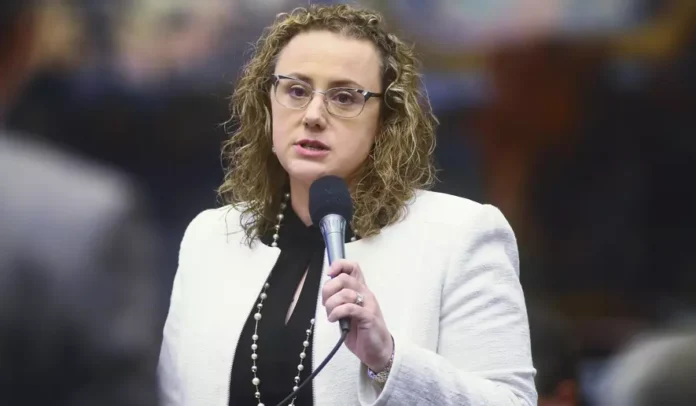TALLAHASSEE, Fla. — A new parental rights bill filed in the Florida Senate could dramatically reshape how minors access health care and school services across the state. Senate Bill 166 (SB 166), sponsored by Sen. Erin Grall (R–Fort Pierce), seeks to increase parental control over a wide range of medical and educational matters, from STD treatment to mental health questionnaires administered in schools.
If passed, the law would take effect on July 1, 2026.
Parental Consent Now Required for STD Treatment
Under current Florida law, minors can receive examination and treatment for sexually transmissible diseases without parental involvement. SB 166 would change that. While health care providers would still be allowed to examine minors for STDs, treatment could not be provided without the consent of a parent or legal guardian.
This is a significant shift from longstanding policy. Florida statutes have allowed minors to access STD diagnosis and treatment independently for decades, a measure originally designed to encourage young people to seek treatment without fear of parental repercussions. It also gives children access to care who may be being abused by their parents themselves.
The bill amends Section 384.30, Florida Statutes, to explicitly state that parental consent is not required for examination, but is required for treatment. It also removes a provision that allowed physicians to provide maternal health and contraceptive services to minors if, in the physician’s opinion, withholding treatment could cause probable health hazards. That exception would be eliminated, further limiting minors’ independent access to contraceptive information and nonsurgical reproductive health services.
Repeals Crisis Intervention Access Without Parental Consent
SB 166 repeals Section 394.4784, which currently allows minors to seek outpatient crisis intervention services, including some mental health treatments, without parental consent. If the bill passes, minors would need a parent or guardian’s written approval for those services as well.
Additionally, the bill tightens rules on mobile response teams that respond to behavioral health crises involving children and teens. While immediate crisis services can still be provided, any follow-up services or referrals would require parental consent.
Increases Parental Oversight in Schools
The bill goes beyond medical care. SB 166 adds new parental rights regarding surveys and questionnaires administered in public schools. It would require school districts to:
- Provide parents with copies of any well-being, mental health, or health screening questionnaires before they’re given to students.
- Notify parents in advance of when the surveys will be administered.
- Allow parents to opt their children out of participating.
The bill also grants parents the explicit right to review, inspect, and consent before their child participates in any survey that asks about sensitive topics, including political affiliations, psychological issues, sexual behavior or attitudes, religious beliefs, and legally privileged relationships such as lawyer-client or clergy-penitent.
New Consent Rules for Biofeedback Devices
Another lesser-known provision requires written parental consent before schools or other entities can use biofeedback devices, such as heart-rate or brainwave monitors, on minors. Any results from those devices must be shared with parents and treated as confidential medical records.
Reinforcing the Parents’ Bill of Rights
SB 166 amends multiple sections of the Florida Parents’ Bill of Rights, reinforcing parents’ authority to make health care decisions for their children. Exceptions remain in cases of abuse investigations, foster care placement, emergency medical situations, or when minors are legally authorized to make certain health decisions under specific statutes.
Violations of the new parental consent requirements would carry administrative penalties under existing statutes.
Legislative Context
Sen. Grall has been a leading figure in Florida’s recent parental rights movement. She previously sponsored high-profile education and health care bills aimed at increasing parental involvement in schools and limiting minors’ access to certain services without parental oversight.
The 2026 legislative session begins on January 13, and SB 166 is expected to draw strong debate between parental rights advocates and public health groups. Supporters argue the bill restores parents’ fundamental role in their children’s upbringing. Critics warn that restricting minors’ access to confidential STD treatment could lead to higher rates of untreated infections, particularly among vulnerable youth.
Bill Details
- Bill: SB 166 – Parental Rights
- Sponsor: Sen. Erin Grall (R–Fort Pierce)
- Effective Date: July 1, 2026
- Filed: October 10, 2025
- Status: Filed; awaiting committee assignment











